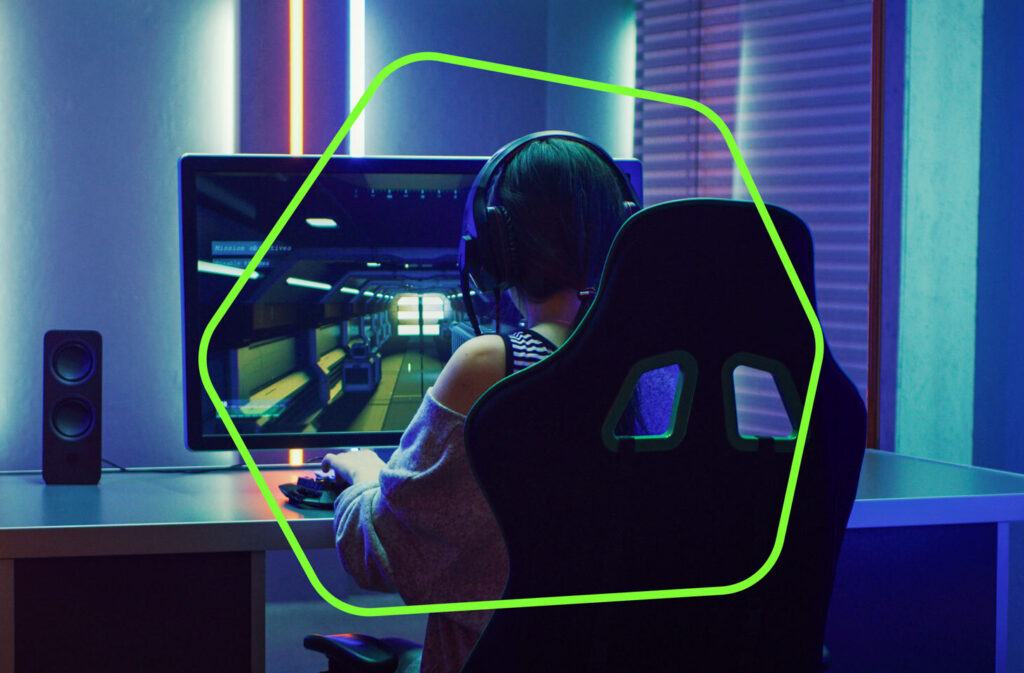Virtual Reality (VR) and the Metaverse have been buzzwords in gaming for years, but 2025 may finally be the year when they live up to their full potential. With major tech giants investing heavily in immersive gaming experiences, VR and the Metaverse are no longer just futuristic concepts—they are becoming reality.
From hyper-realistic VR games to fully interactive Metaverse platforms, the gaming industry is undergoing a transformation. But is this truly the future of gaming, or just another passing trend? Let’s break down the latest advancements, challenges, and what gamers can expect in 2025 and beyond.
The Evolution of VR Gaming: Where Are We Now?
VR gaming has come a long way from the early days of bulky headsets and limited gameplay options. With next-generation VR headsets featuring improved motion tracking, 4K visuals, and reduced motion sickness, the experience is now more immersive than ever.
Latest Advancements in VR Gaming (2025):
- Wireless VR Headsets: No more being tethered to a PC or console.
- Eye-Tracking Technology: Enhances realism by allowing in-game characters to respond to player eye movements.
- Haptic Feedback Suits & Gloves: Feel in-game sensations like gunfire, rain, or even a punch.
- AI-Powered NPCs: Non-playable characters (NPCs) are now smarter and more interactive than ever.
With companies like Meta, Sony, and Valve leading the charge, VR gaming is no longer just a niche market—it’s becoming mainstream.
The Metaverse: Is It the Future of Social Gaming?
The Metaverse promises a virtual world where players can interact, build, and live digital lives beyond traditional gaming. Unlike conventional multiplayer games, the Metaverse allows players to own virtual assets, attend virtual events, and even work in a fully digital economy.
Key Features of the Metaverse in Gaming:
- Persistent Virtual Worlds: Games continue even when you log out.
- Play-to-Earn Mechanics: Gamers can earn real money through digital assets and NFTs.
- Full Social Integration: Voice, video, and AI-driven interactions for a lifelike experience.
- Cross-Platform & Cross-Game Connectivity: Move assets between different games seamlessly.
Games like Horizon Worlds, Decentraland, and The Sandbox are already shaping the future of the Metaverse, but 2025 may finally bring the fully connected virtual worlds that gamers have been waiting for.
What Challenges Holding Back the Metaverse & VR?
Despite the hype, the Metaverse and VR gaming still face several obstacles. The technology is advancing rapidly, but widespread adoption is not without challenges.
Major Challenges in VR & Metaverse Gaming:
- Expensive Hardware: High-end VR headsets and accessories are still costly.
- Motion Sickness Issues: Despite improvements, some players still experience nausea.
- High Internet Speed Requirements: The Metaverse relies on fast and stable internet connections.
- Lack of Standardization: Different companies are building separate virtual worlds, making it hard for users to move assets across platforms.
- Privacy & Security Concerns: With so much personal data involved, cyber threats in the Metaverse are a growing issue.
While these barriers exist, companies are actively working on making VR and the Metaverse more accessible, affordable, and secure.
The Most Anticipated VR & Metaverse Games in 2025
2025 is shaping up to be a game-changing year for VR and Metaverse gaming. Developers are pushing the limits of what’s possible, delivering more immersive, open-world experiences.
Top Upcoming VR & Metaverse Games:
- Grand Theft Auto VR Edition: A fully interactive open-world experience.
- Half-Life 3 VR: Valve’s long-awaited game designed exclusively for VR.
- Meta Horizon Quest: A Metaverse-based social game with advanced AI interactions.
- Star Wars: Immortal Universe: A fully explorable galaxy with VR combat and real-time space battles.
- The Sandbox 3.0: A next-generation blockchain-based Metaverse game.
These upcoming titles show how the industry is merging traditional gaming with immersive VR and Metaverse technology.
5. The Future: Will VR & the Metaverse Dominate Gaming?
With every passing year, VR and the Metaverse are moving closer to mainstream gaming. While they may not completely replace traditional gaming anytime soon, they are likely to coexist and offer players new ways to experience games.
Predictions for VR & Metaverse Gaming by 2030:
- Affordable VR Headsets: More budget-friendly options for mass adoption.
- Fully AI-Generated Open Worlds: Entire game worlds created in real time by AI.
- Neural Link Integration: Brain-computer interfaces for controlling games with thoughts.
- Massive Metaverse Expansion: More companies launching interconnected virtual worlds.
The future of gaming is not just about better graphics or faster processors—it’s about total immersion. Whether it’s exploring massive virtual worlds, battling in hyper-realistic VR fights, or attending concerts in the Metaverse, gaming is evolving into something truly groundbreaking.
Should You Invest in VR & Metaverse Gaming?
If you’re a gamer, 2025 is the perfect time to explore VR and Metaverse gaming. With more affordable hardware, better games, and enhanced realism, the experience is more compelling than ever. However, it’s still a rapidly evolving space, so waiting for further improvements might also be a wise choice.
For now, one thing is clear—VR and the Metaverse are no longer just futuristic concepts; they are here, and they are changing the way we game.

